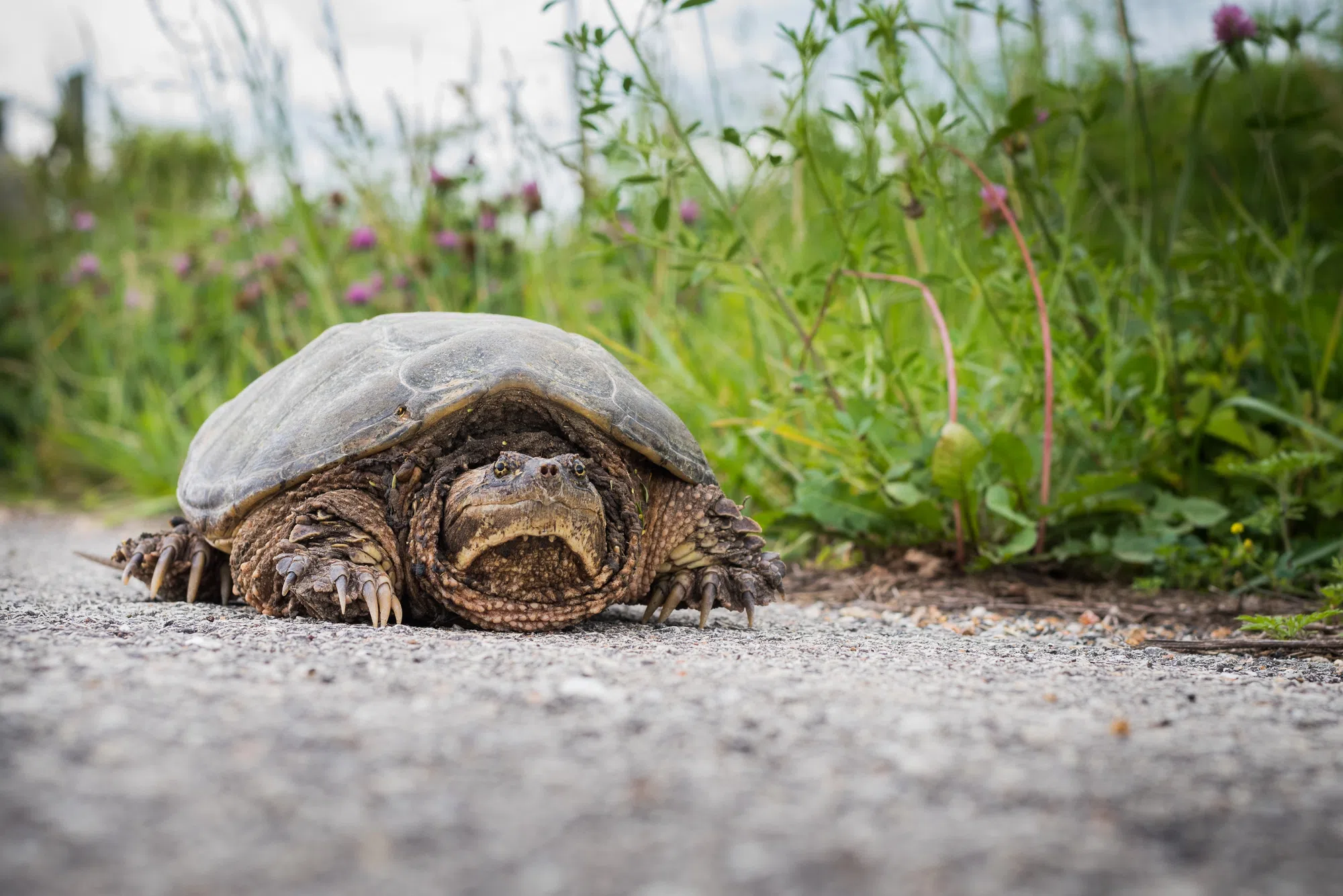You may have noticed more turtles around the roadside recently and that’s because we’re into nesting season.
Nature Conservancy of Canada local program director Esme Batten says, “Late spring early summer is where turtles look to nest. Often after a rain event when the gravel is looser you’ll see them emerging from wetlands and looking for appropriate nesting sites.”
She continues, “They will dig into the gravel and lay eggs and then unfortunately are often victims of road mortality when they’re crossing to begin nesting or afterwards and it can also take them hours to actually nest and lay their eggs.”
Batten says the Nature Conservancy of Canada has done a few outreach educational projects and has also created artificial nesting habitats on some of their properties including one on the Bruce Peninsula to encourage turtles not to cross the road to nest.
Batten explains the artificial nests are a special composition of gravel and sand located close to an existing nesting area to encourage them to use it, instead of the gravel on the side of a road.
“It typically takes turtles a year or two to use and explore the nesting sites but they are part of a successful project to help reduce mortality,” says Batten.
She explains, “It can take quite a long time, sometimes even 20 years for turtles to become mature enough to begin laying eggs. So if you see a large snapping turtle, they could be 50 to 100 years old.”
Batten says, “It’s unfortunate if we lose them from the population. It can have a large impact on a local population of snapping turtles, until other turtles reach sexual maturity and are able to also lay eggs and reproduce. So it is really important that we do what we can to safely help our turtle friends across the road or just slow down and be mindful of where they might be at this time of year especially.”
Batten notes, “There’s a great organization called the Ontario Turtle Conservation Centre that is doing incredible work to rehabilitate turtles. So if you do see a turtle hit on the road, you can contact the Ontario Turtle Conservation Centre and they can help connect you with drivers that will help that turtle travel to their care.”
She adds, “It is true that turtles can survive a large variety of injuries and so it is safe to not assume that they are dead. Also at the Ontario Turtle Conservation Centre if there is a female who is just about to lay her eggs, they can also make sure that her eggs are incubated and are able to hatch.”
You can find out more about how to help turtles off the road here: https://www.natureconservancy.ca/en/where-we-work/quebec/news/carapace-2023.html
And about the Ontario Turtle Conservation Centre here: https://ontarioturtle.ca/
“They are really incredible creatures and ones that deserve a lot of our care and respect,” says Batten.



